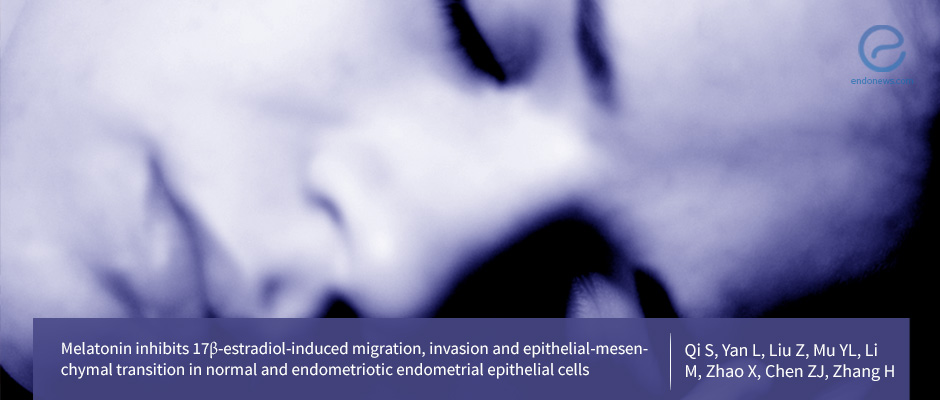Could the Sleep Hormone Treat Endometriosis?
Aug 2, 2018
Melatonin’s therapeutic potential in endometriosis was suggested by a number of studies but the molecular mechanisms remained unclear.
Key Points
Highlights:
- The sleep hormone could play a role in blocking cell proliferation, invasion, and migration, all biological events associated with endometriosis.
Importance:
- Melatonin could, therefore, hold a potential as a new therapeutic avenue that could be explored for the treatment of endometriosis.
What's done here:
- Researchers analyzed endometrial tissue obtained from women with and without endometriosis and looked at the expression of Notch1/Numb signaling and of markers of epithelial to mesenchymal transition (EMT), a biological event crucial for the development and progression of endometriosis
Key results:
- The endometriotic eutopic endometrium showed increased expression of Notch1, Slug, Snail, and N-cadherin (mesenchymal markers), and decreased expression of E-cadherin, and Numb (epithelial markers).
- Both the treatment with melatonin or with inhibitors of Notch1, blocked cell proliferation, invasion, migration, and reduced the expression of EMT biomarkers in normal and endometriotic epithelial cells.
Limitations:
- The conclusions reached in this study are interpretations of observations of tissue samples obtained from a small number of women. Controlled experiments should be conducted in animal models of endometriosis and in a clinical setting In order to explore the real potential of melatonin as a future therapeutic agent for endometriosis.
Lay Summary
Melatonin blocks cell proliferation, invasion, and migration in both normal and endometriotic epithelial cells, according to a study published in the scientific journal Reproductive Biology and Endocrinology. Melatonin could, therefore, be a potential treatment for endometriosis
The formation and progression of endometriosis are linked to a biological event known as the epithelial-mesenchymal transition or EMT. EMT is a process by which a certain type of cells called epithelial cells gain migratory and invasive properties and become another type of cells called mesenchymal cells, which are able to differentiate into a variety of other cell types. Therefore blocking EMT could be a way of preventing the development and progression of endometriosis.
In the present study, the researchers assessed the potential role of melatonin on EMT in endometriotic endometrial epithelial cells. To this aim, they analyzed endometrial tissue obtained from 30 women with endometriosis and from 30 women without endometriosis. They used different techniques to assess the invasion and migration of endometrial epithelial cells as well as cell proliferation. They also looked at the expression of Notch1/Numb signaling and markers of EMT. Notch is a cell signaling molecule involved in the regulation of EMT.
They found that compared to the normal lining of the uterus, the tissue that grows outside had increased expression of Notch1 as well as other proteins that are expressed by mesenchymal cells.
When they blocked the expression of Notch, the researchers saw that cell proliferation, invasion, and migration, as well as biological markers related to EMT, were blocked in both normal and endometriotic epithelial cells. Interestingly, when they blocked the activity of melatonin, they obtained the same results.
These findings led the researchers to conclude that melatonin may block migration, invasion, and EMT both in normal and endometriotic epithelial cells by decreasing the activity of the Notch signaling pathway.
Melatonin is the main hormone secreted by a region of the brain called the pineal gland, which controls sleep, in response to darkness. It is also a broad spectrum antioxidant and free-radical scavenger. Free-radical scavengers are molecules that either prevent the formation of free-radicals or remove them before they can have a damaging effect on cells.
Research Source: https://www.ncbi.nlm.nih.gov/pubmed/29935526
Melatonin sleep hormone Notch signalling endothelial-mesenchymal transition EMT cell proliferation cell migration invasion

